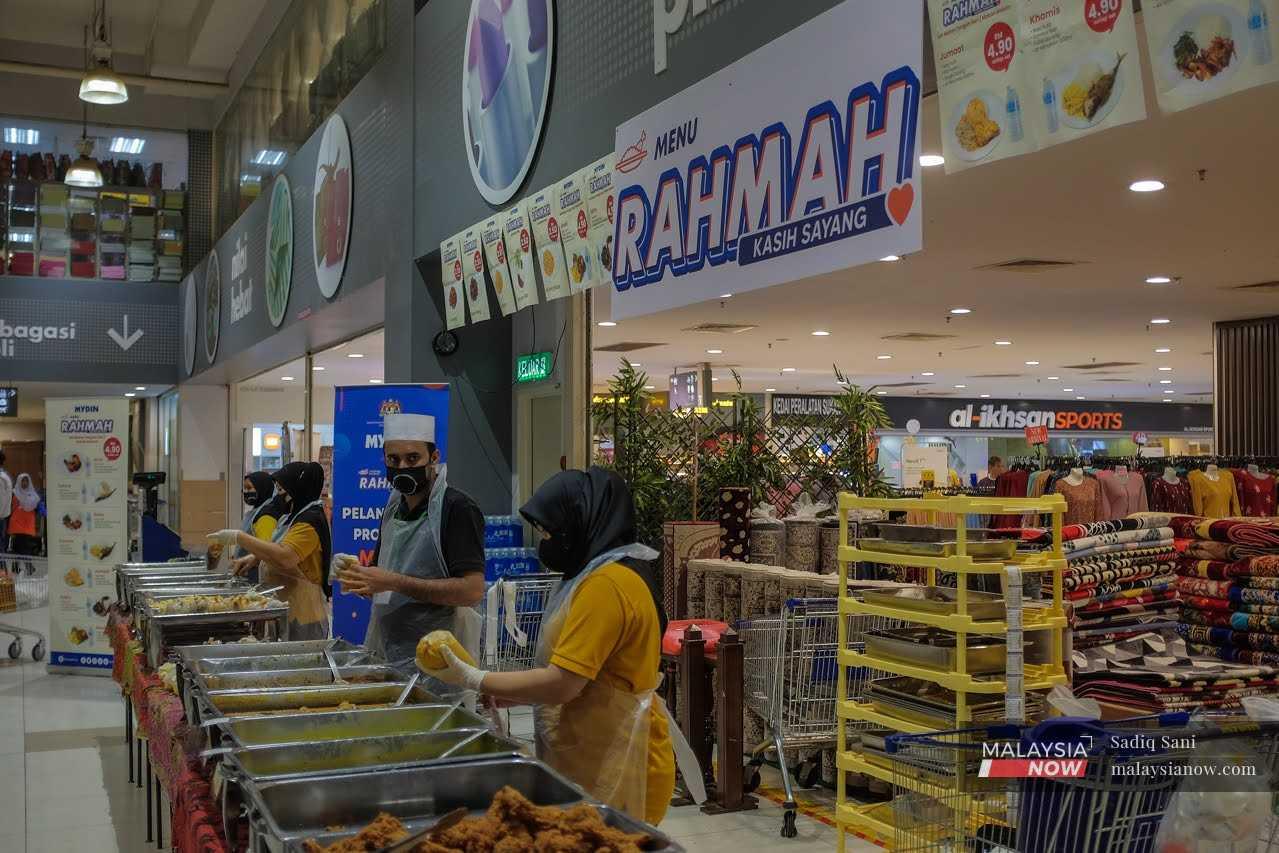For the urban poor, even RM5 is too much for a meal
The government's affordable food programme is still out of reach for many, especially those with large families.
Just In
While the government's affordable food programme has been underway for more than a week now, some urban poor families say that even RM5 per meal is beyond their means as Malaysians struggle to keep up with the rising cost of living.
Thanalinggam, a contractor in Selangor with four children, said he could not afford any of the food made available at eateries under the Menu Rahman programme.
"Maybe I could afford it once a month," Thanalinggam, who earns less than RM2,000, told MalaysiaNow.
"But to eat every day – it would be better to cook for ourselves at home. I would need RM30 to feed everyone in my house through Menu Rahmah, not counting my mother who also lives with us.
"That would make it RM35 for seven sets of food."
But even cooking at home would be difficult for his family, given the current price of even basic food items such as eggs.
It has been a year since he and his family enjoyed any regular protein like fish or chicken in their diets.
Instead, they have been eating the more affordable option of frozen food with white rice and soya sauce.
"Nuggets are RM6 or RM7 per packet," he said. "We can fry them and eat them with rice three or four times."
Sometimes, they also buy sardines or other cheap tinned food.
"It's cheaper than eating out, but still out of our budget most of the time," Thanalinggam said.
For him, it would be better for the government to lower the price of food items such as fish and eggs.
"We could all give our children good and healthy food," he said. "Then they could grow up strong and healthy."
Like hot cakes
Menu Rahmah, which offers meals consisting of rice, one protein source and a helping of vegetables, was launched last month.
Under the programme, meals are sold for as low as RM5 a set.
Participating eateries include Mydin, the Malaysian Indian Muslim Restaurant Owners Association, Pertom and the Malaysian Indian Restaurant Owners Association.
At the Mydin hypermarket in Subang Jaya, the prepackaged meals were selling like hot cakes, with crowds of customers flocking to the tables.
One woman carrying a stack of containers said she was intentionally buying more food to make things easier for her in the house.
Introducing herself as Ida, she said her children could enjoy the food after returning home at 4pm, while the leftovers could be kept in the fridge and heated up again the next day.
"I can also take some to work if I don't have time to cook," she said.
"It's much easier to buy meals like this. If I run out, I can always come back and buy some more."
There are no strings attached to the purchase of Menu Rahmah meals at Mydin hypermarkets, with Mydin boss Ameer Ali Mydin recently saying he was confident that those in the more affordable bracket would not take advantage of the programme.
Speaking to MalaysiaNow, Ida said she and her husband were both civil servants but still struggled to meet their expenses each month.
A group of private university students in the area meanwhile questioned the effectiveness of the Menu Rahmah programme, saying many eateries already provide budget meals throughout the day.
As students, they said, they regularly ate at the roadside stalls near their university.
"There's rice, or laksa and curry noodles. Everything is below RM5 or RM6," they said, adding however that the portions were not as big as those sold at restaurants or coffee shops.
"Menu Rahmah is a good initiative, but even before this there were places offering cheap food – just not restaurants, only food courts or hawker stalls."
Subscribe to our newsletter
To be updated with all the latest news and analyses daily.
